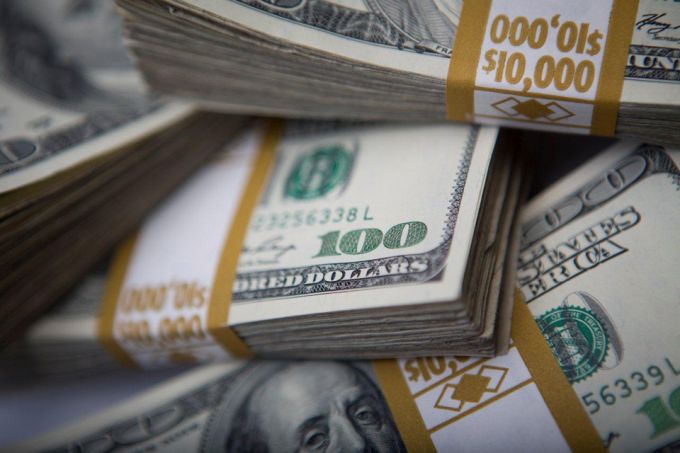
Date: Fri, 4 September 2020
Source: Business Times
Authors:
A distinct difference in performance between European equity sectors this year may be reduced due to the weakening of the US dollar.
Some of this year’s top performing subgroups such as think technology, chemicals and healthcare, includes companies selling outside of the region and hence are able to see their sales translate to fewer euros.
"Technology, health care and staples may be more vulnerable to appreciating currency than sectors like real estate, utilities, retail, telecoms and banks," said Emmanuel Cau, head of equity strategy at Barclays Plc.
Currently for the second half of the year, stock performance has been about what the business is, rather than where: technology has continued its market-topping performance in Europe over the past two months, despite it having the highest sales exposure outside of the region.
Among subsectors, European semiconductor firms such as ASML Holding NV and Dialog Semiconductor Plc are the most global, the groups' sales within the region barely exceeding 10 per cent, data compiled by Bloomberg show.
A stronger domestic currency "will not be nice to exporters in the eurozone", according to Robert Greil, chief strategist at Merck Finck. The euro rose above US$1.20 on Tuesday for the first time in more than two years, and with real US interest rates falling, it should move towards its "purchasing power parity" at around US$1.25 through the end of next year, Mr Greil said.
UBS Wealth Management also expects the dollar to continue weakening, under pressure from Federal Reserve and US administration policies. According to chief investment officers Themis Themistocleous and Solita Marcelli, a Democrat sweep in the upcoming presidential election would help weaken the currency faster, with Republican policies more dollar-friendly.
The European Central Bank is paying attention. Chief economist Philip Lane said at an online conference late on Tuesday that the "the euro-dollar rate does matter" and noted that the rate feeds into monetary policy setting, causing the euro to trim gains.
While most companies use hedging strategies to minimise the impact from foreign-exchange swings, the changing currency map is likely to influence investors' thinking as they determine their future sector exposure. And the impact is already being felt.
Denmark's H Lundbeck A/S, which makes drugs for Alzheimer's and Parkinson's disease, and French fighter-plane maker Dassault Aviation SA are among companies with significant dollar sales that have seen their shares slide since the end of June.
By contrast, German forklift maker Kion Group AG, which sells its products mainly within Europe, and Denmark's DSV Panalpina A/S have both risen more than 20 per cent over the same period.
The same is true for British companies, with the pound having also strengthened against the dollar. Among recent UK-based winners is Kingfisher Plc, which gets the vast majority of revenue from the UK and France, and whose shares are up almost a quarter in the past two months. That said, one may not want to overplay the currency effect just yet. A challenging foreign-exchange climate could lead European exporters to address the challenges through "cost cutting and other increased efficiencies", according to Fidelity International strategist Carsten Roemheld.
Keyword : sterlinghousetrust.com, Sterling House Trust, SHT
Sterling House Trust is a private trust with a difference. It offers its members an exclusive and reliable platform to access unique opportunities and lifestyle services reserved for the select few. With its team of professional managers Sterling House Trust constantly scans the markets and collaborate with reliable global partners to create a portfolio of carefully curated programmes for its members. Members can access these programmes according to their individual needs, interest and financial capacity. Sterling House Trust is headquartered in Auckland, New Zealand, and has operations based in London, UK.
The Sterling House Trust platform was established with the objective of providing its members, secure access to opportunities across a range of global locations, sectors and services.

Our unique Platform was established within the framework of a trust so that the trust would have oversight and governance over the range of services and its quality. Member protection is a core principle and drive in all that we do. Our trustees ensures that the interests and quality of service provided by the Platform are always maintained at the highest standards.
The trust and its trustees provide robust oversight and is constantly on the move to identify and shortlist select opportunities in the international markets. Likewise, we apply the same stringent standards in identifying and selecting providers and professional partners to join our Platform.
The Sterling House Trust Platform utilises our international footfall and relationships to provide our members with access to a range of international opportunities via our global network which covers a broad range of sectors including:
Asset protection, international property ownership and management, alternative and direct ownership, estate planning, banking services, foreign exchange, card services, alternative investment and lifestyle services.

New Zealand Head Office
31/335 Lincoln Road,
Addington
Christchurch
New Zealand
London Office
14-16 Dowgate Hill,
London,
England EC4R 2SU